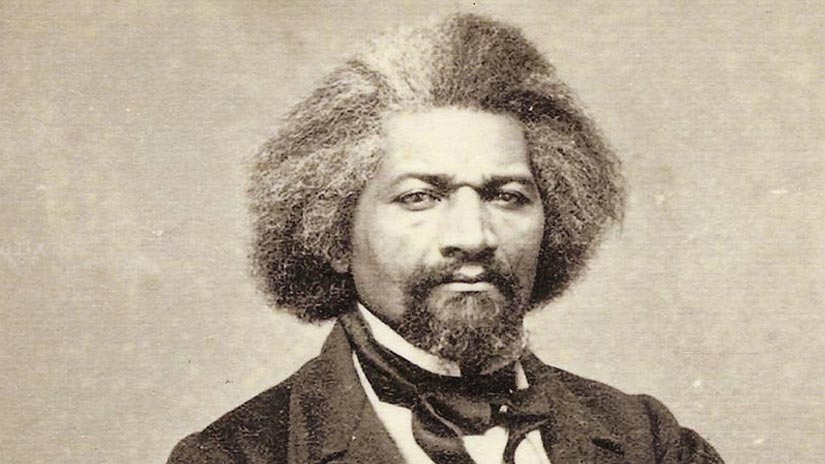It was only after a few years of working with a colleague at a D.C. museum that I learned that she is a descendant of Frederick Douglass. It is not something she readily reveals.
She shared the fact during her welcome remarks at an event presented by the March on Washington Film Festival (for which I am Artistic Director) and hosted at her venue that featured Daughters of the Movement. The Daughters are the offspring of Harry Belafonte, Diahann Carroll, Malcolm X, Ossie Davis & Ruby Dee, and Bill Lynch.
We learned that being the progeny of an historical figure is not always an easy road to walk. From the pain and hesitation in my colleague’s voice, along with the immense pride she felt, it was clear there were reasons she kept her lineage private.
This weekend, two friends sent me the link to an NPR video of other younger descendants of Frederick Douglass reciting his famed July 4, 1852 address. In it he answers the question, “What to the Slave is the Fourth of July?”
Douglass eloquently expresses the perspective (skepticism and cynicism, to downright disavowal and repudiation) of enslaved Africans at this notion of liberty from tyranny and self-determination so proudly heralded on this holiday. It’s no surprise, that perspective is still widely held today among descendants of Africa in this country. Liberty and justice for all is hailed as a universal notion that is not universally applied.
But that is not what I want to discuss here. What is more important to me is the fact that it was two white friends who sent it to me.
Let me be clear. I love that they are, and have been as long as I have known them, allies. They not only hold ally-ship as a grounding principle in their lives, they live it in their words and works. And they have been nothing short of collaborative, supportive, honest and giving to me. And perhaps now we can move on from the term “ally” as in adjacent to, and find a way to elevate it to a common cause, a shared humanity.
But what I felt from receiving the video was a sense of fatigue that African-ancestored people must again carry the work of reminding the world that yes, racism is real, it’s systemic, it still exists, and it still hurts, maims and kills.
Over the centuries, there have been many methods employed.
We express our humanity through our artistry, proficiency and eloquence. We hope that our very public torture and murder appeals to their better angels. We confront with our outrage and react with our rage. We bestow the balm of our forgiveness. We wait for better days to come.
In the past few months, we have been experiencing another awakening to injustice on the part of the greater society, probably more than ever before. But that is far from enough, if we want this to be more than a superficial occurrence.
What I look forward to is the white person or people who publicly and unabashedly confront the system that upholds some and oppresses others. Who look beyond the surface examples of privilege to its subtle, pervasive and insidious manifestations.
I want to see them use their eloquence beyond t-shirts and texting. It’s time to dig into the discomfort, feel the guilt, shame, anger and/or defensiveness before trying to get past it. It’s too easily considered the last or only stop in changing, when it is but the first rung of the change ladder. It is also a smoke screen of manipulation, using feeling badly – and expecting us to sympathize – foregoes the much deeper disquieting of the status quo that is mandatory for change.
To quote New York Times contributing writer, Erin Aubry Kaplan, “Being truly antiracist will require white people to be inconvenienced by new policies and practices, legal and social that affect everything in everyone’s daily lives, from jobs to arts and publishing.”
When white people take a public stand in front of or with other white people, and really listen to what the oppressed have to say, and then join us in the real and sustained, painful and gritty work required, we can truly elevate the current conversation into action.






